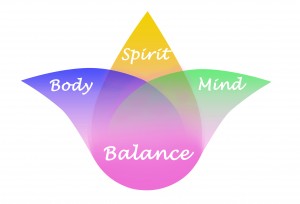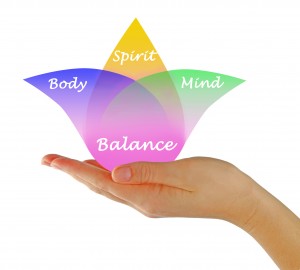“Why go holistic?”
Expert medical organizations, including the National Institutes for Health, the U.S. Surgeon General, the Center for Disease Control, John’s Hopkins and Mayo Clinic, all recognize that stress is out-of-control and a major player in 80% of all diseases and disorders.
Today’s health care consumers in the U.S. want to get healthier, not just feel better. They want natural solutions that ‘do no harm’ and have no unhealthy effects. They want quality information about themselves so they can get into the driver’s seat and decide how to navigate. Studies by authors of Essentials of Complementary and Alternative Medicine, Wayne Jonas, M.D. and Jeffrey Levin, Ph.D. M.P.H. show that Americans are increasingly demanding:
- gentler, less toxic, less invasive first-line interventions
- more integrative and alternative options
- more information and choice to make the best decisions possible for their health care
- more participation and involvement in their treatments((Jonas, W. B. & Levin, J. (1999). Essentials of Complementary and Alternative Medicine. Philadelphia, PA: Lipincott, Williams & Wilkins.)
Holistic stress-reduction practitioners can help meet these demands, in part because they are entirely relieved of any burden to ‘diagnose and treat’. Their efforts go towards looking deeply at the stress in each person’s unique profile. They provide awareness coaching to help people get the information they need to set priorities, choose values-aligned self-care and practitioner-facilitated methods, and decide on a plan to meet their stress-reduction needs. They supervise a self-directed process that engages the whole self in making subtle adjustments that powerfully respond to people’s intentions for high-quality health.
“What is holistic stress-reduction?”
Holistic stress-reduction interventions can be easily integrated in any healthcare approach. They recognize and affirm what’s right with people. They work based on the premise that the body, mind and spirit are interdependent parts of a whole system, and uphold the human body as part of a continuum of intelligent, responsive energy that permeates the physical and beyond. They aim to help people remove stressors so the body can naturally return to a state of harmony and balance.
Holistic st ress-reduction interventions focus on the wholeness and adaptive resilience of the body when it is in harmony with the intelligence and energy of spirit. They regard bodily conditions as impermanent waves of an energetic sea whose tides are limitlessly capable of being turned. Based on the laws of quantum physics, and the notion that thought can turn energy into matter, these interventions work on the premise that the human energy system is capable of responding to the mind’s spiritually-fueled intention and will to restore health. To ground such intentions and engage the will to get there, they help people expand the consciousness of mind, increasingly work with their awareness to make healthy decisions, actively care for their health, and keep stress at healthy levels. In this sense, holistic stress reduction is often seen as a sensible and empowering pre-emptive measure to nip deeper problems in the bud, promote well-being, and maintain health.
ress-reduction interventions focus on the wholeness and adaptive resilience of the body when it is in harmony with the intelligence and energy of spirit. They regard bodily conditions as impermanent waves of an energetic sea whose tides are limitlessly capable of being turned. Based on the laws of quantum physics, and the notion that thought can turn energy into matter, these interventions work on the premise that the human energy system is capable of responding to the mind’s spiritually-fueled intention and will to restore health. To ground such intentions and engage the will to get there, they help people expand the consciousness of mind, increasingly work with their awareness to make healthy decisions, actively care for their health, and keep stress at healthy levels. In this sense, holistic stress reduction is often seen as a sensible and empowering pre-emptive measure to nip deeper problems in the bud, promote well-being, and maintain health.
“How can I learn to holistically de-stress?”
There are many drug-less, non-invasive, gentle, natural, synergistic approaches that are effective for first-line holistic self-care and facilitated stress-reduction. They empower people to:
- sense patterns and blockages in energy flow and build awareness of stressors
- use the mind to access the wisdom of spirit and set health intentions:
- go deep within for solutions — generate goals, identify blockages to goals, determine how to remove blockages
- decide how to care for bodymind health by collecting, examining and interpreting inner guidance in relation to externally supplied information and recommendations
- intuitively navigate the unknown with the curiosity, openness of scientific inquiry to discover and decide for themselves what is true
- replace negative and self-limiting beliefs with the expansive, uplifting universal truths of the heart
- experience certainty in the personal relevance of goals and decisions, and in the mind’s ability to tap into the powerhouse of spirit to navigate and create
- harmonize body, mind and spirit and reach deep states of relaxation to:
- reduce stress and pain
- maximize the flow and bio-availability of energy to re-vitalize the cells
- fortify the body’s innate abilities to detoxify, repair, regenerate, balance, purify and correct itself
- increase overall emotional and physical immunity and resilience
- restore vitality, clarity, balance, peacefulness and productivity
- clarify what’s needed to maintain balance — physical vitality, mental clarity, emotional peace and spiritual grounding
- keep stress at healthy levels to minimize tension, pain, illness and loss of time and energy
- recover focus and energy for health and life goals
“What techniques can I use to holistically de-stress?”
Holistic techniques for facilitating stress-reduction are seemingly endless.
Biofeedback specialists feed information back to people about the stress in their unique profiles. They train people to consciously work with their awareness, take control over responses typically regarded as unconscious, and use signals from the body to understand its messages and reduce stress and pain. That frees up the body to put its innate recuperative abilities into action and frees up the mind to focus on more skillfully managing stress day-to-day. Biofeedback services may include muscle re-education and brainwave training.
Spiritual and quantum health coaches also facilitate stress reduction by training people in techniques they can use to more readily experience and read their energy flow, identify their blockages, and intuitively discern what is relevant to de-stressing and healing themselves. These include energy-transmission techniques, such as New Paradigm Multi-dimensional Transformation®, purifying techniques, such as ionCleanse®, and meditation techniques such as Mindful Self-Compassion. Deep breathing, meditation, and muscle testing are additional techniques people can use to open the door to a self-directed healthcare process of asking incisive questions, getting key information, and making the least stress-producing and best stress-reduction and health care decisions. All of these methods aim to empower people with all-purpose higher-self reliance skills that may be fruitfully applied to increasing ease in all areas of life.
With the right kind of supervision and support, people can learn to integrate one or more techniques into a personalized first-line strategy to de-stress – nip stress in the bud, reverse stress patterns in a timely way, and keep stress at healthy levels – and actively care for their health in natural, gentle, safe, effective ways.